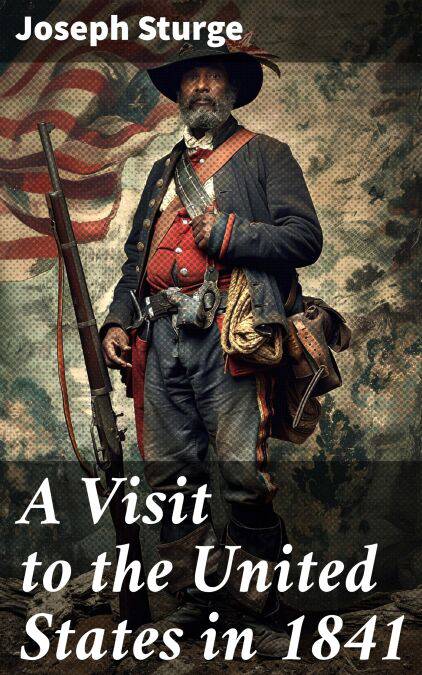
- Afhalen na 1 uur in een winkel met voorraad
- Gratis thuislevering in België vanaf € 30
- Ruim aanbod met 7 miljoen producten
- Afhalen na 1 uur in een winkel met voorraad
- Gratis thuislevering in België vanaf € 30
- Ruim aanbod met 7 miljoen producten
Zoeken
A Visit to the United States in 1841 E-BOOK
Exploring America in 1841: A Social Justice Journey
Joseph Sturge
E-book | Engels
€ 1,99
+ 1 punten
Uitvoering
Omschrijving
In "A Visit to the United States in 1841," Joseph Sturge offers a meticulous account of his travels through America, providing an insightful glimpse into the socio-political landscape of the time. Written in a reflective and observational literary style, Sturge captures encounters with various communities, illuminating the complexities of antebellum America, including issues of slavery, abolitionism, and social reform. His narrative intertwines personal anecdotes with broader social critiques, positioning the work within the larger context of 19th-century travel literature as an important artifact of cultural exchange and historical documentation. Joseph Sturge was a prominent British abolitionist, Quaker, and social reformer, whose commitment to humanitarian causes profoundly influenced his worldview. His visit to the United States was motivated by a desire to understand the conditions surrounding slavery and racial injustice firsthand. This phase of Sturge's life, marked by his advocacy for peace and equality, serves as a crucial backdrop to his observations and analyses presented in the work, making it a vital contribution to abolitionist literature. Readers interested in the foundations of American social issues and reform will find value in Sturge's keen insights and thought-provoking reflections. His work remains a poignant reminder of the moral struggles of the time, making it essential reading for those who seek a deeper understanding of the historical context surrounding the quest for justice in America.
Specificaties
Betrokkenen
- Auteur(s):
- Uitgeverij:
Inhoud
- Aantal bladzijden:
- 270
- Taal:
- Engels
Eigenschappen
- Productcode (EAN):
- 8596547508908
- Verschijningsdatum:
- 11/08/2023
- Uitvoering:
- E-book
- Beveiligd met:
- Digital watermarking
- Formaat:
- ePub

Alleen bij Standaard Boekhandel
+ 1 punten op je klantenkaart van Standaard Boekhandel
Beoordelingen
We publiceren alleen reviews die voldoen aan de voorwaarden voor reviews. Bekijk onze voorwaarden voor reviews.











